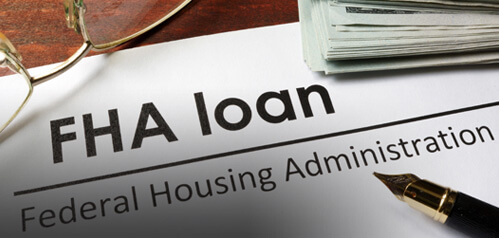FHA Home Loans: Your Guide to Low Deposit Home Mortgage Options
FHA Home Loans: Your Guide to Low Deposit Home Mortgage Options
Blog Article
Home Loans Debunked: A Comprehensive Evaluation of Finance Programs Tailored to Fit Your Economic Circumstance and Objectives
Navigating the landscape of home finances often provides a challenging challenge, worsened by a myriad of programs created to satisfy varied economic needs. Comprehending the distinctions between adjustable-rate and fixed-rate home mortgages, as well as government-backed options like FHA and VA loans, is essential for making notified decisions.
Comprehending Mortgage Basics
Although many individuals desire homeownership, recognizing the basics of mortgage is crucial to making informed financial choices. A home mortgage, additionally referred to as a home mortgage, is a monetary product that allows people to obtain cash to purchase property. The debtor is needed to repay the financing amount, in addition to rate of interest, over a set duration, commonly ranging from 15 to 30 years.
Secret elements of mortgage include the principal, which is the quantity obtained, and the rate of interest price, which figures out the price of loaning. Lenders examine different aspects, such as credit revenue, debt-to-income, and rating ratio, to determine qualification and financing terms. Additionally, debtors ought to be mindful of the importance of down payments, which can affect car loan approval and impact regular monthly payments.
Understanding car loan amortization is additionally important; this refers to the gradual reduction of the funding balance with time with regular payments. By comprehending these essential concepts, potential house owners can navigate the home mortgage landscape better, eventually leading to better financial results and an even more effective home-buying experience.
Kinds of Home Loan
When checking out the landscape of home financing, understanding the various types of home loan is crucial for making an enlightened option. Home loan can mainly be classified right into adjustable-rate and fixed-rate home mortgages (ARMs) Fixed-rate home loans provide a constant interest rate and month-to-month repayment over the finance's term, supplying stability, usually for 15 to three decades. This predictability appeals to house owners that favor budgeting certainty.
Conversely, ARMs have rate of interest that change based upon market problems, generally starting less than fixed-rate options. However, these rates can change occasionally, possibly raising monthly settlements in time. Borrowers who expect refinancing or moving prior to significant rate adjustments might locate ARMs useful.
Furthermore, government-backed car loans, such as FHA, VA, and USDA financings, satisfy details demographics and provide different advantages like reduced deposits and flexible credit scores requirements. Traditional car loans, not guaranteed by the federal government, frequently call for greater credit report yet can offer affordable prices for solvent debtors - FHA home loans. Comprehending these lending types enables potential property owners to pick the mortgage that lines up best with their economic scenario and lasting goals
Trick Eligibility Requirements
Navigating the eligibility requirements for a mortgage financing is a crucial action in the home-buying process. Understanding these requirements can significantly streamline your application and enhance your possibilities of approval.
The key elements affecting qualification include credit rating, earnings security, debt-to-income (DTI) proportion, employment background, and down settlement amount. Most lenders require a minimum credit rating of 620 for traditional fundings, while government-backed fundings might have extra tolerant criteria. A steady income, showed through regular work or self-employment documents, is important for lending institutions to examine click here for more your capability to pay back the lending.
The DTI proportion, which compares your regular monthly financial obligation settlements to your gross monthly earnings, generally must not go beyond 43%, though some lenders might enable greater ratios in particular scenarios. In addition, the size of your deposit can influence qualification; while a larger down payment may improve your opportunities, particular programs use choices for marginal down repayments.
Last but not least, loan providers will assess your general monetary account, consisting of readily available properties and liabilities, to guarantee you are economically capable of maintaining homeownership. Familiarizing on your own with these essential qualification demands will encourage you in the home loan application journey.

Rate Of Interest Explained
Recognizing the intricacies of rate of interest is fundamental to making notified decisions in the home financing procedure. Passion rates represent the cost of borrowing cash and are expressed as a percent of the funding amount. They can considerably influence your month-to-month mortgage settlements and the total expense of your home lending.
Rates of interest can be categorized into repaired and flexible prices. Repaired rates continue to be constant throughout the finance term, giving predictability in month-to-month payments. Conversely, flexible prices fluctuate based on market conditions, which can lead to lower first repayments yet might increase with time.
A number of variables affect rates of interest, consisting of the borrower's credit report, lending term, and prevailing financial conditions. Lenders evaluate these elements to identify the risk connected with providing to a particular borrower. Generally, a higher credit rating can result in reduced rate of interest, while longer funding terms might lead to greater rates.
Furthermore, wider financial signs, such as inflation and monetary policy, play an essential role in shaping interest prices. Comprehending these aspects allows customers to far better navigate the loaning landscape and choose choices that straighten with their financial goals.
Choosing the Right Car Loan Program
Picking the appropriate funding program is essential for debtors aiming to enhance their financing options. With various loan kinds readily available, including fixed-rate, adjustable-rate, FHA, and VA fundings, understanding the subtleties of each can considerably affect long-term financial health.
Borrowers ought to initially my response assess their economic scenario, consisting of debt scores, earnings stability, and debt-to-income proportions (FHA home loans). A fixed-rate mortgage supplies predictability with consistent monthly settlements, ideal for those planning to remain in their homes long-term. On the various other hand, adjustable-rate home loans may give lower first prices, attracting purchasers who anticipate moving within a few years
Furthermore, government-backed lendings such as FHA and VA options can be helpful for novice homebuyers or veterans, as they frequently call for reduced deposits and have extra tolerant credit rating requirements.

Conclusion
In conclusion, browsing the intricacies of home loans calls for a thorough understanding of different mortgage programs and their distinct features. By examining individual monetary situations and objectives, potential borrowers can make educated choices relating to the most appropriate funding options.
Fixed-rate home mortgages provide a regular interest rate and monthly payment over the loan's term, providing security, frequently for 15 to 30 years.Additionally, government-backed finances, such as FHA, VA, and USDA financings, provide to particular demographics and supply different benefits like reduced down payments and versatile credit rating check it out needs. A lot of lending institutions require a minimal credit score of 620 for standard finances, while government-backed finances may have a lot more lenient requirements. Dealt with rates continue to be constant throughout the lending term, giving predictability in monthly payments. Normally, a greater credit rating can lead to lower interest rates, while longer finance terms might result in higher prices.
Report this page